Kholm province. Is this Polish land too? Russian answer to the Polish question. 5 part
However, in reality it began to take shape there only after the suppression of the 1863 uprising of the year, mostly in the form of majorats - the empire was preparing to secure land in the Vistula valley seriously and for a long time. However, in parallel with the agrarian reform, which bore a distinctly “collective” character, in the east of Poland there remained communal administration with elective wujats, stalls, saltys, and local courts had much broader rights than in the central provinces of Russia (1).
Ordered to cross
The ruling class and landowners on the territory of Kholmshchina were mainly Poles, and the Russians were mostly peasants; at the same time, they spoke Russian and preserved their Russian identity. According to modern studies, at the beginning of the 20th century, Poles in the Kholmshchyna accounted for the entire 4% of the population, but due to the fact that almost all the major landowners and nobles in these provinces were Poles, only they were in the State Duma and the State Council. Researchers rightly point out that "the estate estate characteristic was in contradiction with national realities."
P. Stolypin wrote about this: “For a democratic Russia, the Poles are not in the least intimidating, but Russia, in which the nobility and bureaucracy rules, must defend itself from the Poles by means of artificial measures, fences of“ national curias ”. Official nationalism is forced to resort to these methods in a country where there is an unquestionable Russian majority, because noble and bureaucratic Russia cannot touch the ground and draw strength from the Russian peasant democracy (2).
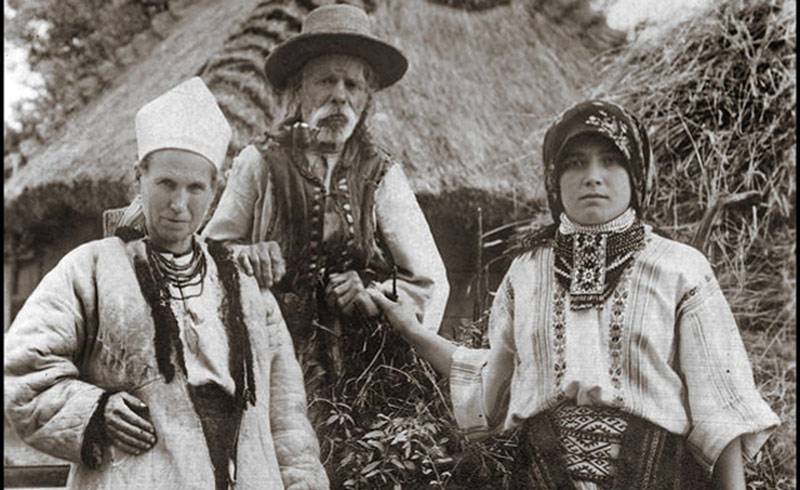
The Polish question was one of the main ones already in the work of the reform committee created by Emperor Alexander II. And at the first meeting, where the Polish theme was considered, Prince Cherkassky and N.A. Milyutin was offered to isolate Kholmshchyna from the Kingdom of Poland, saving her from craving for Lublin and Sedlec.
However, the main ideologue of the “isolation”, Milyutin, was not only too busy with other reforms, but also seriously feared new political complications in order to force this issue.
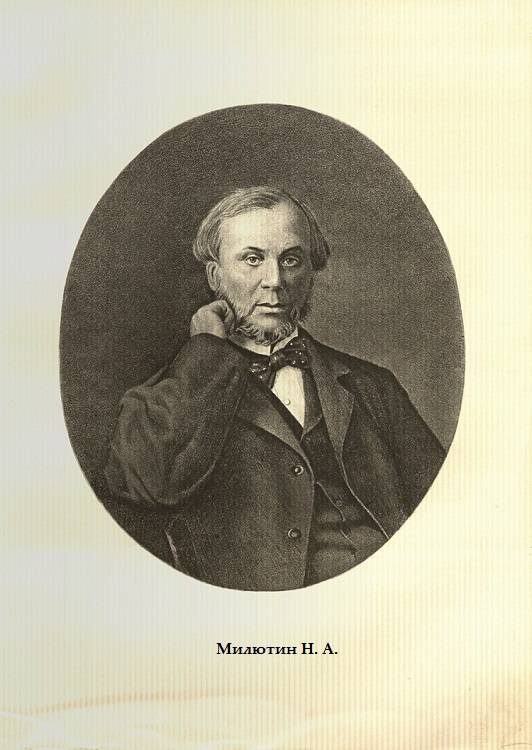
Noting that "in Russia, Russians can enjoy all the rights of independence from administrative units," he recognized that in the event of the immediate dissociation of the Hill, even the Russian population of the Catholic faith "will definitely move to the Poles." Therefore, the first radical step towards the creation of the Russian Kholm province can be considered the reunification of Uniates with Orthodoxy in 1875. In this case, the Uniates were allowed liberties, unthinkable with the omnipotence of the Russian church.
In Vilna, the anniversary of the reunification of Uniates with Orthodoxy was widely celebrated;
Nevertheless, in fact, it was a direct ban on Uniatism, since all Greek Catholic priests and believers were ordered ... to convert to Orthodoxy. Military force was used against the resisting, which caused a backlash opposite to the expectations of the Russian authorities. Formally, the majority of Uniates adopted Orthodoxy, while remaining in their hearts supporters of their particular denomination. And if the Greek Catholic Church was liquidated, many had no choice but to become secret Roman Catholics.
However, several tens of thousands of Uniates were able to convert to Catholicism quite openly. In general, rectilinear Russification had the opposite effect - many residents of Kholmshchina and Podlasie where they felt more generally their dubious unity with the rest of the inhabitants of the Kingdom of Poland. The priests immediately began to use the fact of “new baptism” to form the newly converted Polish national identity. The scale of the secret transition of the inhabitants of Kholmshchina and Podlasie from union to Catholicism is indicated by the data of the well-known pre-revolutionary researcher of the Kholm problem. Frantsev, who relied on quite official Russian statistics.
For all its prejudice, we note that after the royal decree of 17 on April 1905, which proclaimed freedom of religion, but did not allow the Greek Catholic Church in Russia, the mass exodus of the "Orthodox" into Catholicism began in the Lublin and Sedlets provinces. For three years, 170 thousands of people have moved to Catholicism, mostly they were residents of Kholm and Podlasie (3). The transition to a different faith, although not so massive, continued even later, and the total number of residents of Kholmshchina and Podlyashya who converted to Catholicism, according to some historians, was close to 200 thousand people.
However, in a large part of Kholm region, especially in the east and in the central part of the region, the population remained Russian-speaking and Ukrainian-speaking. He had his own, completely different from Polish, self-consciousness. Even if someone has converted to Catholicism, moreover, it is often only because the Catholic church in which all generations of the family prayed became. They prayed, not really thinking about what the rite is done.
The project on the allocation of the Kholm region into a separate province, ”recalled Metropolitan Eulogius,“ “was put forward two or three times by Russian patriots, systematically buried government offices in Warsaw, then (at Pobedonostsev) in St. Petersburg. Nobody wanted to understand the meaning of the project. For government agencies, it was just a matter of modifying the trait on a geographical map of Russia. Meanwhile, the project responded to the most pressing needs of the Kholm people, he defended the Russian population from polonization interspersed in the administrative district of Poland, took away the right to treat Kholmshchina as part of the Polish region. Russian patriots understood that separating Kholmshchina into a separate province would be an administrative reform of enormous psychological significance ”(4).
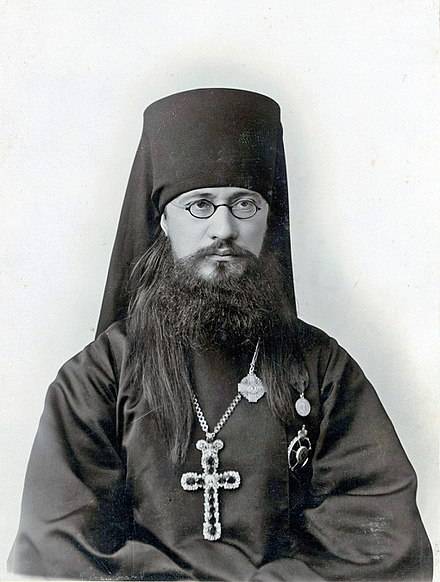
Metropolitan Eulogius became Bishop of Holm, being a very young man
Polish question in miniature
The realization that the Kholmsky question is a Polish question in miniature came very quickly. The Kholmsky project after the end of the “Great Reforms” was repeatedly rejected in the bud, but at the same time they took certain measures to russify the region - through the schools an active, sometimes even cheeky advancement of Orthodoxy was carried out. But at the same time they almost didn’t touch the main thing - the economic structure. Here the stake was clearly made on the fact that the landowners should become Russians first, and the farm laborers would “get used to it”.
However, it was not easy to cross the Uniates. By the end of the 19th century, only according to the official statistics of the Synod, among those who were formally transferred to the Orthodox, thousands of “recalcitrant” 83 remained, and they still had about 50 thousands of unbaptized children. And according to unofficial data, only in Sedletsk province there were 120 thousands of “recalcitrant” (5). But even at this time, even conservatives headed by K.P. Pobedonostsev insisted on an exclusively “firm” policy in the Kholmshchyna region, up to and including court sentences against Uniates who did not want to be baptized in Russian (6).
This position was based on the decision of the Special Conference created by Alexander III immediately upon accession - its members simply decided to “consider stubborn Orthodox”. It was then that, for the first time, the thesis was said that “farm laborers will get used to”, and Pobedonostsev repeatedly raised the question wider - right up to the creation of the Kholm province. The authority of the well-known conservative with the Tsar-peacemaker was so great that an appropriate request was immediately sent from the Special Meeting to the Governor-General of Privislin Territory I.V. Gurko.
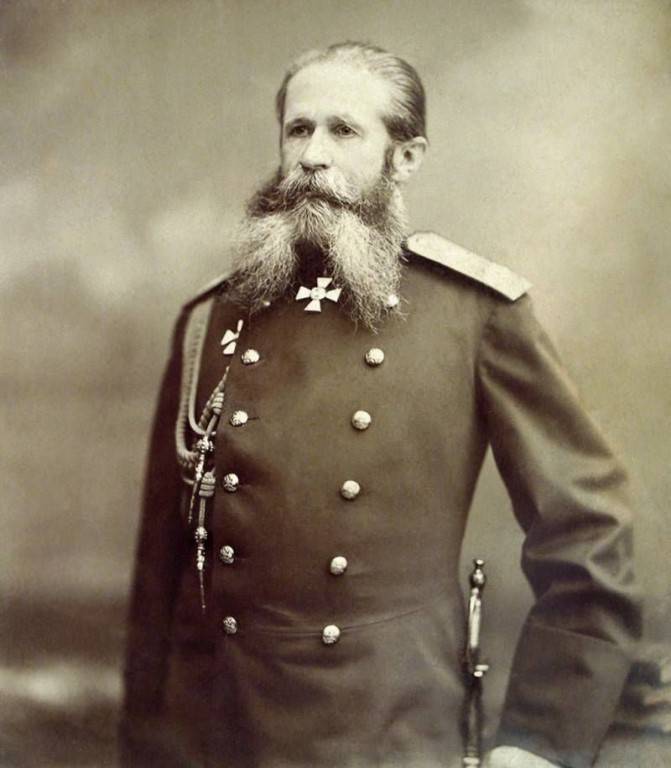
The legendary hero of the liberation of Bulgaria, Field Marshal I.V. Gurko did not justify the hopes of supporters of the accession of Kholm region
But quite unexpectedly, he spoke out sharply against it, believing that "thereby Russia would push the rest of the Poles into the arms of the Germans." The legendary field marshal, who was not seen in liberalism, believed that "this (singling out the Kholm province) will only complicate the police measures against the Uniates." By itself, a useful measure, in the haste of execution, "deprived the governor-general of the ability to follow the threads of propaganda." In addition, Gurko led a strategic argument: the separation of the Polish and economically unified territories would “prevent the successful management of military defense tasks in this most important border area” (7).
After the death of Alexander III, Field Marshal Gurko in Warsaw was replaced by Count PA Shuvalov, better known for his bright diplomatic career. To the great surprise of those who knew him as a conservative patriot and Slavophil, sometimes prone to compromise with Europe, Shuvalov immediately declared himself an ardent supporter of the creation of the Kholm province.
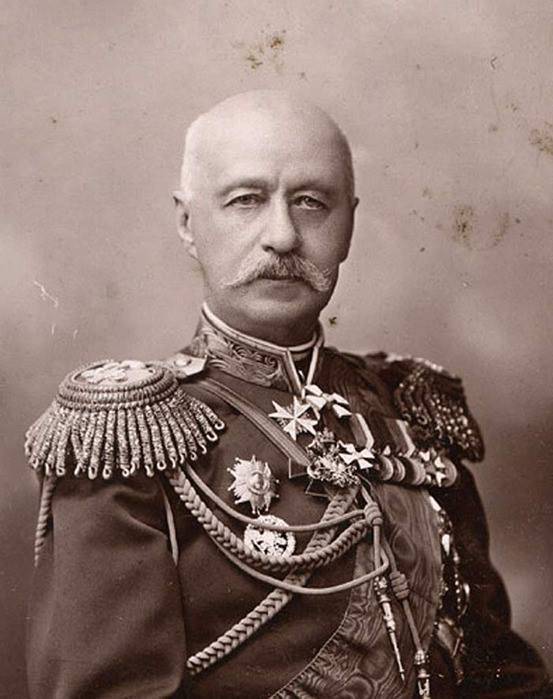
Count Pavel Shuvalov was, it seems, not at all against "putting the Poles from the Russian land"
“It is necessary to unite the stubborn population into one whole and put a solid barrier between it and the cities of Lublin and Sedlec - these true centers of Polish-Jesuit propaganda,” wrote the count in a note addressed to the young king. Nicholas II, who had just ascended the throne, already by virtue of the traditions implanted in the reign of his father, managed to get saturated with “Great Russian spirit” and immediately wrote on a note by Shuvalov: “I fully approve.”
It was not for nothing that the liberals called Shuvalov a “colorless figure in this post” (the Warsaw governor-general), recalling that he had lived in Berlin for a long time and clearly fell under Prussian influence. There were also those who recalled to the former “hero” of the Berlin Congress a long-lasting illness, which resulted, among other things, in the lack of freedom from foreign influence, primarily German, in the Polish question.
The historian Shimon Ashkenazi noted that it was precisely this that affected Shuvalov’s attitude towards the selection of Kholmshchyna, rather self-confidently calling the point of view of the governor-general an exception (8). Shuvalov, however, was no exception to the other - he, like all Warsaw governors, the supporters of the allocation of Kholmshchina accused the Poles of acquiescence, and the liberals - on the contrary, in a rough anti-Polish policy. Nevertheless, the post of Warsaw Governor-General Shuvalov was soon replaced by Prince AK Imeretinsky, who immediately rushed to remind the emperor that the hasty decision of the Kholmsky issue "would have made a depressing impression on the most" beautiful "Pole" (9).
The famous Basilica, or Holm Cathedral. 100 years ago and now
The aforementioned statistics, possibly deliberately exaggerated in order to push the solution of the Kholm problem, unexpectedly played exactly the role that was expected of them. In addition, they were promptly "seasoned" with messages about the trips to the Kholmsk diocese of the Catholic bishop Yachevsky, accompanied by a retinue in historical costumes with banners and Polish national flags; and the activities of the Opieki nad uniatami and Bracia unici societies.
Notes
1. A. Pogodin, The History of the Polish People in the 19th Century, M. 1915, p. 208
2. P. Struve, Two Nationalism. On Sat Struve PB, Russia. Motherland Alien, St. Petersburg, 2000, p.93
3. Oliynyk P. Likholittya Kholmshchini i Pіdlyashshya // The modest cultural and national rozvoyu Holmshini i Pіdlyashshya in XIX and XX century. Prague, 1941, p. 66.
4. Metropolitan Evlogy Georgievsky, The Path of My Life, M. 1994, p. 152
5. Government Gazette, 1900, No.10, The position of the Orthodox on the outskirts
6. A.F.Koni, From the notes and memoirs of a judicial figure, “Russian past,” 1909, # XXUMX, page 2
7. TSGIAL, Council of Ministers Fund, d.76, 2 inventory, 32-33 list.
8. Szymon Askenazego, Galerdia Chelmska, Biblioteka Warszawska, 1909, t.1, ch.2, p.228
9. TsGIAL, Council of Ministers Fund, d.76, 2 inventory, 34 sheet.
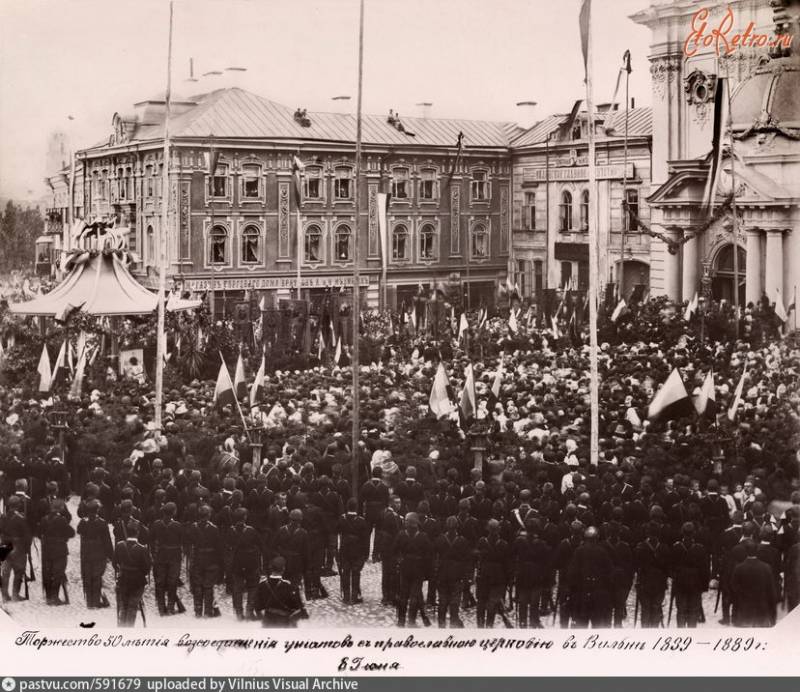
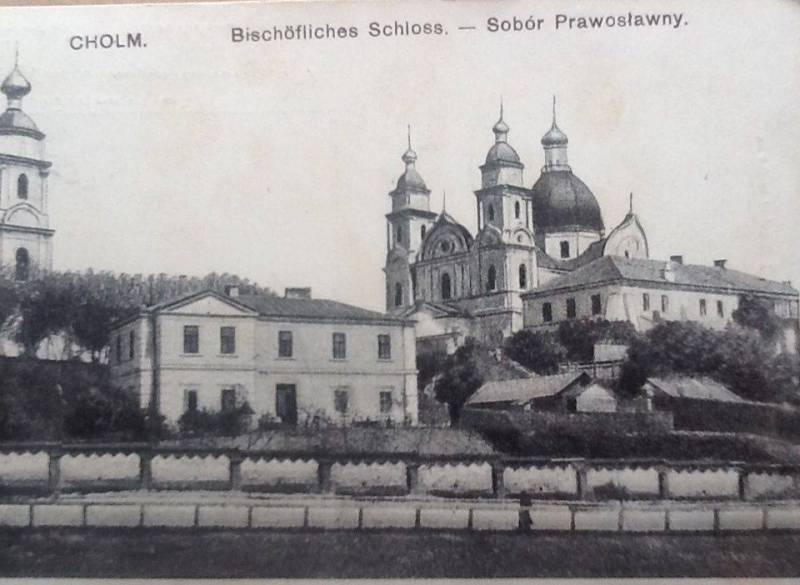
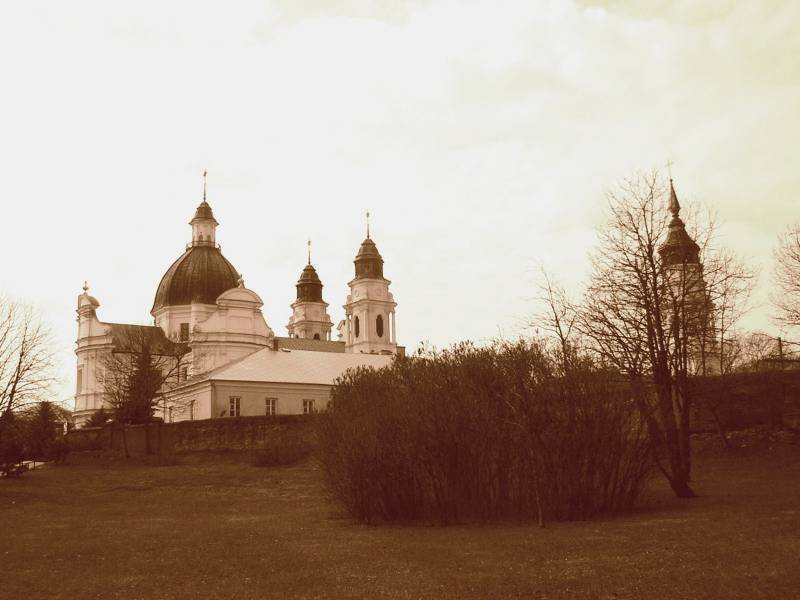
Information